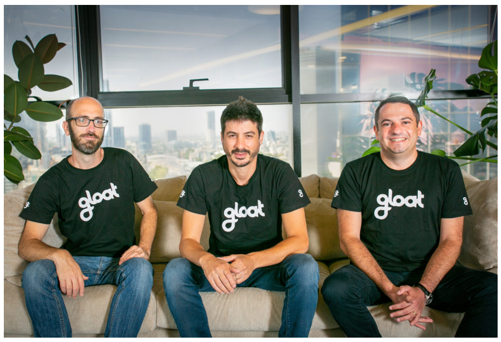A journal entry from Generation’s Growth Equity team
Over the last two years, companies of all sizes have faced unprecedented stress. In 2020 many were forced to close as governments mandated lockdowns. Global supply chains, which once seemed so strong, now seem unreliable. But managing workforces has become the most persistent problem of all.
A labour shortage is making hiring exceptionally difficult. On average, companies have to offer pay deals to new hires which are 6% larger than a year ago -- the highest figure in two decades.1 In March 2022, 4.5 million Americans quit their jobs, 30% more than in the same month of 2019.2 And now fears of a global recession loom. More and more managers are working under hiring freezes, putting additional pressure on existing staff.
Many companies are in this position in part because of decades of underinvestment in their employees. In 2019 American firms’ investment in software rose by just 4%, one of the lowest recorded figures outside of a recession.3 Many companies have long made staffing decisions that are disorganised or informed by gut instinct. And for too long, managers have believed that managing and investing in their workforces is a secondary concern. Why bother to treat your staff well if you can just hire someone new?
Focus on and Tooling for Employees Takes Off
Source: Google Trends: 2004-Present (Worldwide)
Finally, though, there is evidence of some change. Companies are relying less on external hiring and focussing more on retaining staff. The latter is less expensive, less time consuming and requires fewer firmwide resources. This may involve paying higher wages. But it also means investing in efforts to make workers more productive and engaged. American software investment is now rising at 13% a year,4 which includes investments in everything from shift-management solutions to automated payroll processing to productivity software for distributed teams. Companies are offering their staff a wider range of perks including educational opportunities and more flexible annual leave policies. This shift is both the result of tight labour markets and of adjusting employee norms and expectations.
Generation already invests in many companies powering the new world of work -- from Asana, Toast and Andela, to Gusto and Guideline. These companies are bound by an important tie: they provide products and services to help typically underserved employee populations -- including people employed by small businesses, geographically remote workers and employees with fewer educational qualifications.
Today we announced our investment in Gloat, pioneers of the first AI-driven internal Talent Marketplace and Workforce Agility platform. We are pleased to partner with Ben, Amichai, Danny and the entire Gloat team to continue investing in “The Future of the Worker.” Gloat’s platform leverages AI (Artificial Intelligence) to incorporate skill-to-opportunity mapping, neural networks and anti-bias mitigation to match individuals to opportunities within a company. It allows workers to connect to “gigs” in a different functional area from their own team and to meet up with mentors from a different office or geography or better understand the right upskilling and reskilling initiatives that will help them realise their ideal career path. And even find a different full-time job within the organisation.
We believe Gloat’s technology solves a number of internal labour-market inefficiencies. It unlocks thousands of hours of productivity for Fortune 500 companies. Not only does this mean that a company uses its existing workforce more efficiently, raising productivity, but also it brings opportunities to people who may never have had them before. It therefore results in increased employee satisfaction with career and development opportunities, as shown in employee surveys.

Rather than searching for a new hire on the open market -- a potentially expensive and uncertain process -- Gloat enables companies to look for what they need on their doorstep. This is important when labour markets are not only as tight as they have been, but also could prove especially useful in a downturn, when a company must continue to be agile even as it cannot afford to take on a new staff member.
It is no surprise to us then that Gloat’s product can result in extremely high ROI for its users. Customers include Unilever, Standard Chartered Bank, Schneider Electric, Nestlé, HSBC, Novartis, Mastercard and a host of other global employers. At full-scale deployment within a company, Gloat sees adoption rates surpass 80% across the employee base, with a significant proportion of these employees actively engaged in the product on a monthly basis. In our view, Gloat’s marketplace also can help unlock hidden talent for managers, and help companies achieve their DEI goals by giving every employee equal visibility and access to opportunities.
We believe that the structural pressures on the workforce are likely to deepen in the coming years. The shift in many countries towards deglobalisation, comprising “reshoring” of certain activities and a greater aversion to trade, will raise labour demand at home. Advanced economies continue to shift towards services industries which tend to be more labour-intensive. And an onrushing wave of baby-boomer retirements will cut labour supply, even as demand remains the same or even increases. As these pressures persist or become more acute, we believe the New Era of the Worker is here to stay. The “future of work” resides in companies such as Gloat, facilitating a better “future of the worker.”



